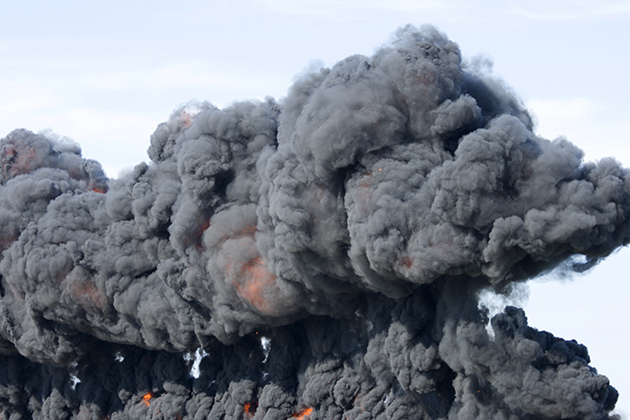As the Islamic State’s three-week-old offensive for control of Syria’s northern border continues, a U.S.-led coalition has intensified airstrikes trying to block the Islamist militants’ advance, spurring debate here at home in the run-up to midterm elections over how aggressively the U.S. should intervene in yet another crisis in the Middle East.
UConn Today turned to Jeremy Pressman, director of Middle East studies and an associate professor of political science at UConn, for his views on the latest developments. Pressman previously worked at the Carnegie Endowment for International Peace, and is a former term member of the Council on Foreign Relations. You can follow him on Twitter @djpressman.
Q. President Obama’s handling of foreign policy and terrorism – most recently the situation with ISIS (Islamic State) militants – has been criticized for appearing confused and unplanned. Is the United States better off when it intervenes militarily in the Middle East or, really, anywhere?
A. Since the rise of the United States as a global power, people have been debating this question. After the Vietnam conflict, the pendulum clearly swung in the direction of caution, but that did not last long; think Grenada, Lebanon, Panama, and then, on a larger scale, the first Gulf War.
The post-2003 debacle in Iraq helped bring to power a president who favored U.S. restraint abroad, even when some of his cabinet members, like Hillary Clinton and Leon Panetta, pushed for more vigorous action. More generally, liberal hawks and neo-conservatives don’t like President Obama’s reluctance to intervene, and have been pushing for a more active U.S. military policy – especially in Syria, given the massive human rights violations and population displacement.
In stepping up attacks against ISIS in Iraq and then Syria, President Obama – pick your poison –
- caved under domestic pressure, driven by the two horrifying beheadings of Americans;
- wanted to appease critics, but still will not actually allow major U.S. military intervention (in other words, the rhetoric is stronger than the reality);
- recognized that the growing strength of ISIS worsened the threat against the United States and required a policy shift; and/or
- was deeply troubled on the humanitarian level and wanted to help.
Q. How significant is it that several Middle Eastern allies joined the U.S. to strike Islamic State (or ISIS) militants in Syria?
A. It is significant if it continues. U.S. allies in the region, including governments in Egypt, Jordan, Saudi Arabia, and the United Arab Emirates, see threats coming from two directions. First, the threat from the Iranian sphere of influence, including not only Iran but also Hezbollah in Lebanon and Bashar al-Assad’s government in Syria. Greg Gause of Texas A & M has written about the new cold war between Saudi and Iran. Second, they see a threat from non-state Islamists like ISIS or, for the Egyptian government, Egypt’s own Muslim Brotherhood.
Talking about this in summary form is tricky, as not all these governments have the exact same concerns and emphasis. Furthermore, what kind of Islamist troubles the United States government? ISIS does. Saudi Arabia has supported the spread of Wahhabism for years, but it remains an ally.
Q. What could go wrong with the course the Obama administration is now on?
A. Aerial bombing might be insufficient to stop ISIS. Additional ground forces (not just the U.S. “advisors” already there) might be needed to stop or roll back ISIS, and even then, it might not work. The Iraqi Army appears weak and ineffective, despite years of U.S.-led training and resources. U.S. bombs may hit Iraqi and Syrian civilians. The fragmented, multi-actor war environment in Syria – and Iraq – is ripe for unexpected developments, some of which could be quite nasty.
In short, military intervention often does not work as intended. Is it possible that directly confronting ISIS is the right approach? Yes. But given all the problems the United States has faced working with the Iraqi government over the last decade, count me as a skeptic.
Q. President Obama has cautioned that U.S. attacks against Islamic State are the start of a prolonged international campaign against extremist forces in the Middle East. Does Congress have an obligation to authorize U.S. action by a vote?
A. If the United States is going to increase the intensity of its military attacks and if this is going to be a long military operation in Iraq and Syria, I would like to see President Obama turn to Congress for assessment and approval. While we have a history of U.S. military intervention without Congressional approval or oversight, bringing the matter to Congress allows important questions to be asked, and brings the process one step closer to the people and their sentiments.



